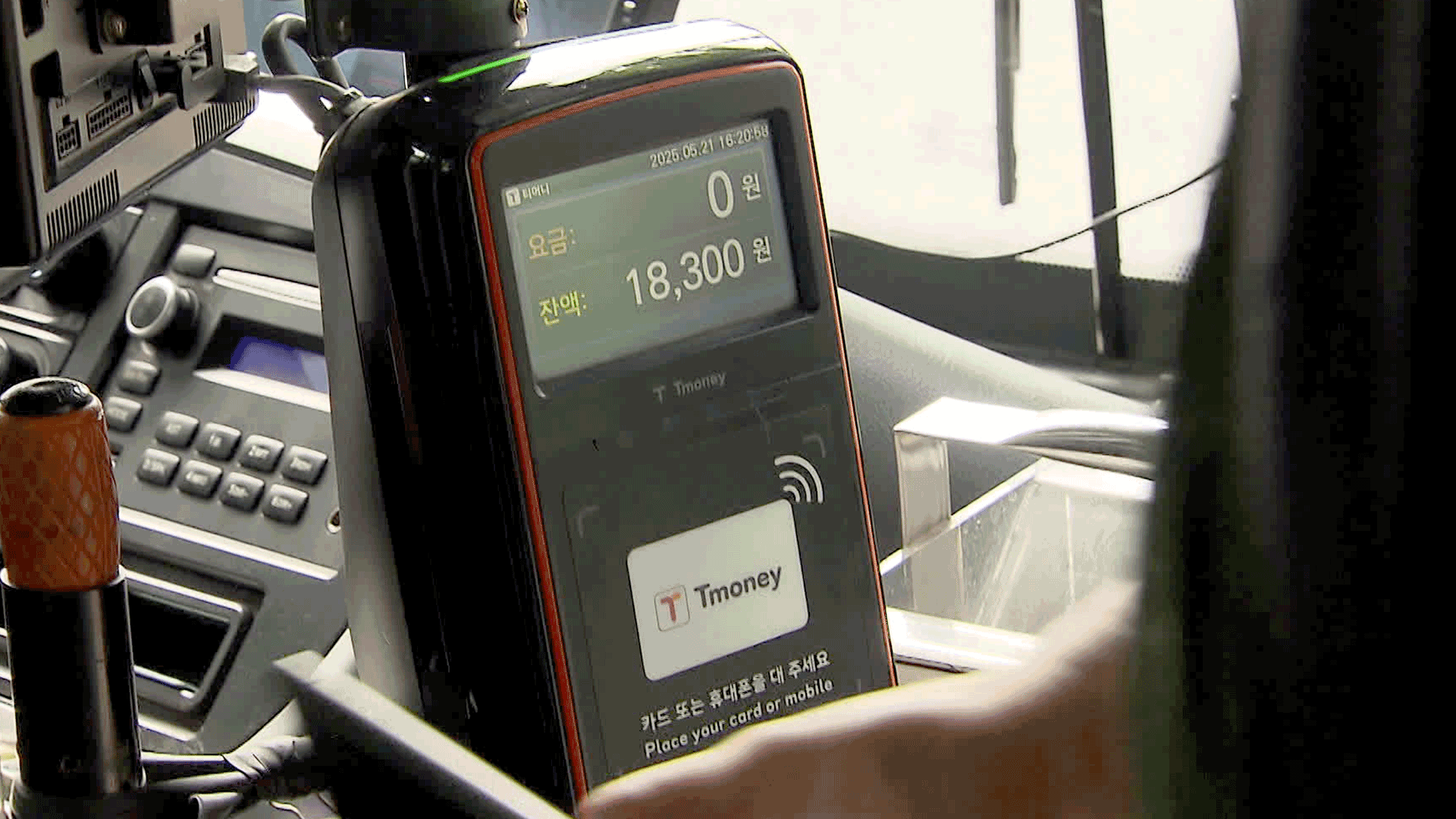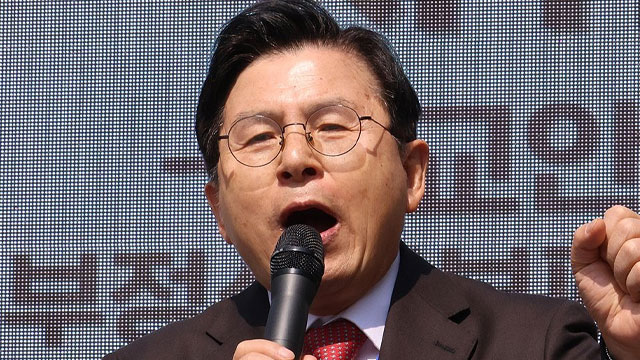[Anchor]
As the labor and management sides of Seoul city buses are struggling with wage negotiations, the union has announced a general strike on May 28.
In the meantime, the Seoul Townbus Association has also brought up the possibility of halting operations, demanding deficit compensation from the city of Seoul.
Reporter Go Ah-reum has the story.
[Report]
Village buses, which connect every corner of the neighborhood, serve as the "feet of the common people."
On May 28, when the Seoul city bus union has announced a general strike, village bus companies have also stated that they will consider halting operations.
City bus companies, which operate under a semi-public system, receive compensation for losses from the city of Seoul, but village bus companies bear the full brunt of any deficits.
["Transfer."]
In particular, there is significant dissatisfaction regarding the distribution of transfer fares.
When a passenger transfers from a village bus to a city bus and pays 1,500 won, the two bus companies share the fare according to a set ratio.
Until now, the city of Seoul has provided separate support for the transfer losses incurred by village bus companies, but there has been a disagreement over the scale of this year's support.
[Kim Yong-seung/Chairman of the Seoul Townbus Association: "We are not receiving the full amount of transfer loss from the institutional body (Seoul City). Therefore, it is only right that this should be increased."]
Village bus companies claim that the losses have reached 14 billion won by March of this year and are demanding not only the support funds but also an increase of 300 won in the current village bus fare of 1,200 won.
The 140 village bus companies in Seoul will decide whether to halt operations on the 28th at a general meeting tomorrow (5.22).
[Seoul Citizen: "(If village buses) don't run, it's inconvenient. Especially for older people, it's worse."]
The city of Seoul has warned that, unlike the city bus union, village bus companies cannot be the main body of a strike and could face license cancellations for collective actions.
This is KBS News, Go Ah-reum.
As the labor and management sides of Seoul city buses are struggling with wage negotiations, the union has announced a general strike on May 28.
In the meantime, the Seoul Townbus Association has also brought up the possibility of halting operations, demanding deficit compensation from the city of Seoul.
Reporter Go Ah-reum has the story.
[Report]
Village buses, which connect every corner of the neighborhood, serve as the "feet of the common people."
On May 28, when the Seoul city bus union has announced a general strike, village bus companies have also stated that they will consider halting operations.
City bus companies, which operate under a semi-public system, receive compensation for losses from the city of Seoul, but village bus companies bear the full brunt of any deficits.
["Transfer."]
In particular, there is significant dissatisfaction regarding the distribution of transfer fares.
When a passenger transfers from a village bus to a city bus and pays 1,500 won, the two bus companies share the fare according to a set ratio.
Until now, the city of Seoul has provided separate support for the transfer losses incurred by village bus companies, but there has been a disagreement over the scale of this year's support.
[Kim Yong-seung/Chairman of the Seoul Townbus Association: "We are not receiving the full amount of transfer loss from the institutional body (Seoul City). Therefore, it is only right that this should be increased."]
Village bus companies claim that the losses have reached 14 billion won by March of this year and are demanding not only the support funds but also an increase of 300 won in the current village bus fare of 1,200 won.
The 140 village bus companies in Seoul will decide whether to halt operations on the 28th at a general meeting tomorrow (5.22).
[Seoul Citizen: "(If village buses) don't run, it's inconvenient. Especially for older people, it's worse."]
The city of Seoul has warned that, unlike the city bus union, village bus companies cannot be the main body of a strike and could face license cancellations for collective actions.
This is KBS News, Go Ah-reum.
■ 제보하기
▷ 카카오톡 : 'KBS제보' 검색, 채널 추가
▷ 전화 : 02-781-1234, 4444
▷ 이메일 : kbs1234@kbs.co.kr
▷ 유튜브, 네이버, 카카오에서도 KBS뉴스를 구독해주세요!
- Seoul village buses may halt
-
- 입력 2025-05-22 00:19:04

[Anchor]
As the labor and management sides of Seoul city buses are struggling with wage negotiations, the union has announced a general strike on May 28.
In the meantime, the Seoul Townbus Association has also brought up the possibility of halting operations, demanding deficit compensation from the city of Seoul.
Reporter Go Ah-reum has the story.
[Report]
Village buses, which connect every corner of the neighborhood, serve as the "feet of the common people."
On May 28, when the Seoul city bus union has announced a general strike, village bus companies have also stated that they will consider halting operations.
City bus companies, which operate under a semi-public system, receive compensation for losses from the city of Seoul, but village bus companies bear the full brunt of any deficits.
["Transfer."]
In particular, there is significant dissatisfaction regarding the distribution of transfer fares.
When a passenger transfers from a village bus to a city bus and pays 1,500 won, the two bus companies share the fare according to a set ratio.
Until now, the city of Seoul has provided separate support for the transfer losses incurred by village bus companies, but there has been a disagreement over the scale of this year's support.
[Kim Yong-seung/Chairman of the Seoul Townbus Association: "We are not receiving the full amount of transfer loss from the institutional body (Seoul City). Therefore, it is only right that this should be increased."]
Village bus companies claim that the losses have reached 14 billion won by March of this year and are demanding not only the support funds but also an increase of 300 won in the current village bus fare of 1,200 won.
The 140 village bus companies in Seoul will decide whether to halt operations on the 28th at a general meeting tomorrow (5.22).
[Seoul Citizen: "(If village buses) don't run, it's inconvenient. Especially for older people, it's worse."]
The city of Seoul has warned that, unlike the city bus union, village bus companies cannot be the main body of a strike and could face license cancellations for collective actions.
This is KBS News, Go Ah-reum.
As the labor and management sides of Seoul city buses are struggling with wage negotiations, the union has announced a general strike on May 28.
In the meantime, the Seoul Townbus Association has also brought up the possibility of halting operations, demanding deficit compensation from the city of Seoul.
Reporter Go Ah-reum has the story.
[Report]
Village buses, which connect every corner of the neighborhood, serve as the "feet of the common people."
On May 28, when the Seoul city bus union has announced a general strike, village bus companies have also stated that they will consider halting operations.
City bus companies, which operate under a semi-public system, receive compensation for losses from the city of Seoul, but village bus companies bear the full brunt of any deficits.
["Transfer."]
In particular, there is significant dissatisfaction regarding the distribution of transfer fares.
When a passenger transfers from a village bus to a city bus and pays 1,500 won, the two bus companies share the fare according to a set ratio.
Until now, the city of Seoul has provided separate support for the transfer losses incurred by village bus companies, but there has been a disagreement over the scale of this year's support.
[Kim Yong-seung/Chairman of the Seoul Townbus Association: "We are not receiving the full amount of transfer loss from the institutional body (Seoul City). Therefore, it is only right that this should be increased."]
Village bus companies claim that the losses have reached 14 billion won by March of this year and are demanding not only the support funds but also an increase of 300 won in the current village bus fare of 1,200 won.
The 140 village bus companies in Seoul will decide whether to halt operations on the 28th at a general meeting tomorrow (5.22).
[Seoul Citizen: "(If village buses) don't run, it's inconvenient. Especially for older people, it's worse."]
The city of Seoul has warned that, unlike the city bus union, village bus companies cannot be the main body of a strike and could face license cancellations for collective actions.
This is KBS News, Go Ah-reum.
-
-

고아름 기자 areum@kbs.co.kr
고아름 기자의 기사 모음
-
이 기사가 좋으셨다면
-
좋아요
0
-
응원해요
0
-
후속 원해요
0















이 기사에 대한 의견을 남겨주세요.